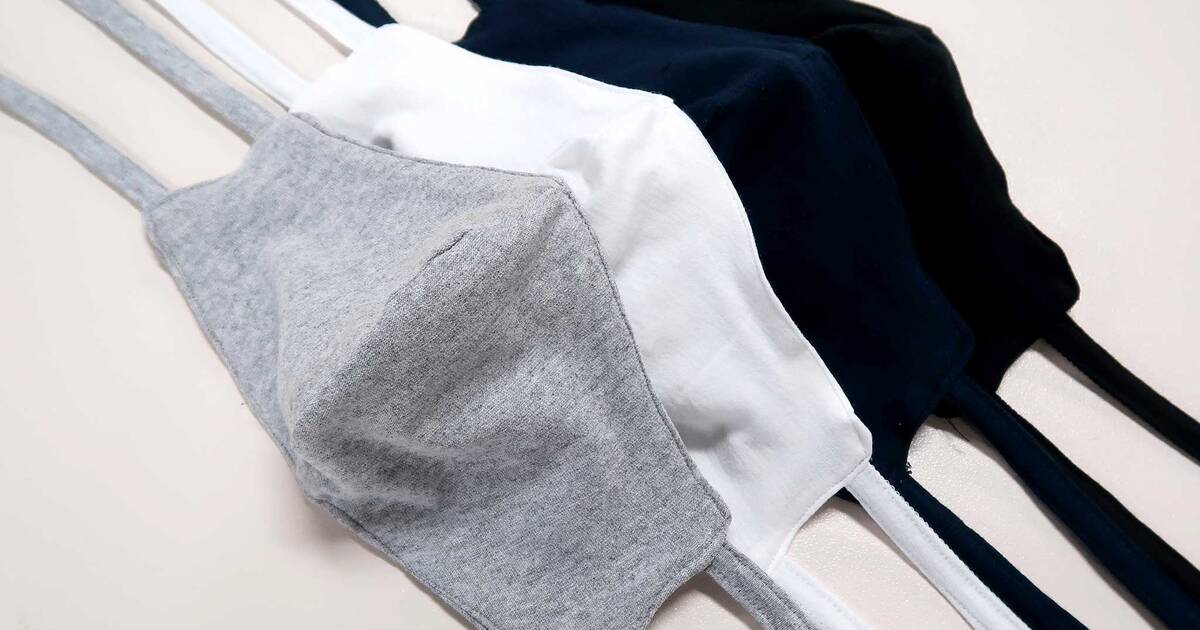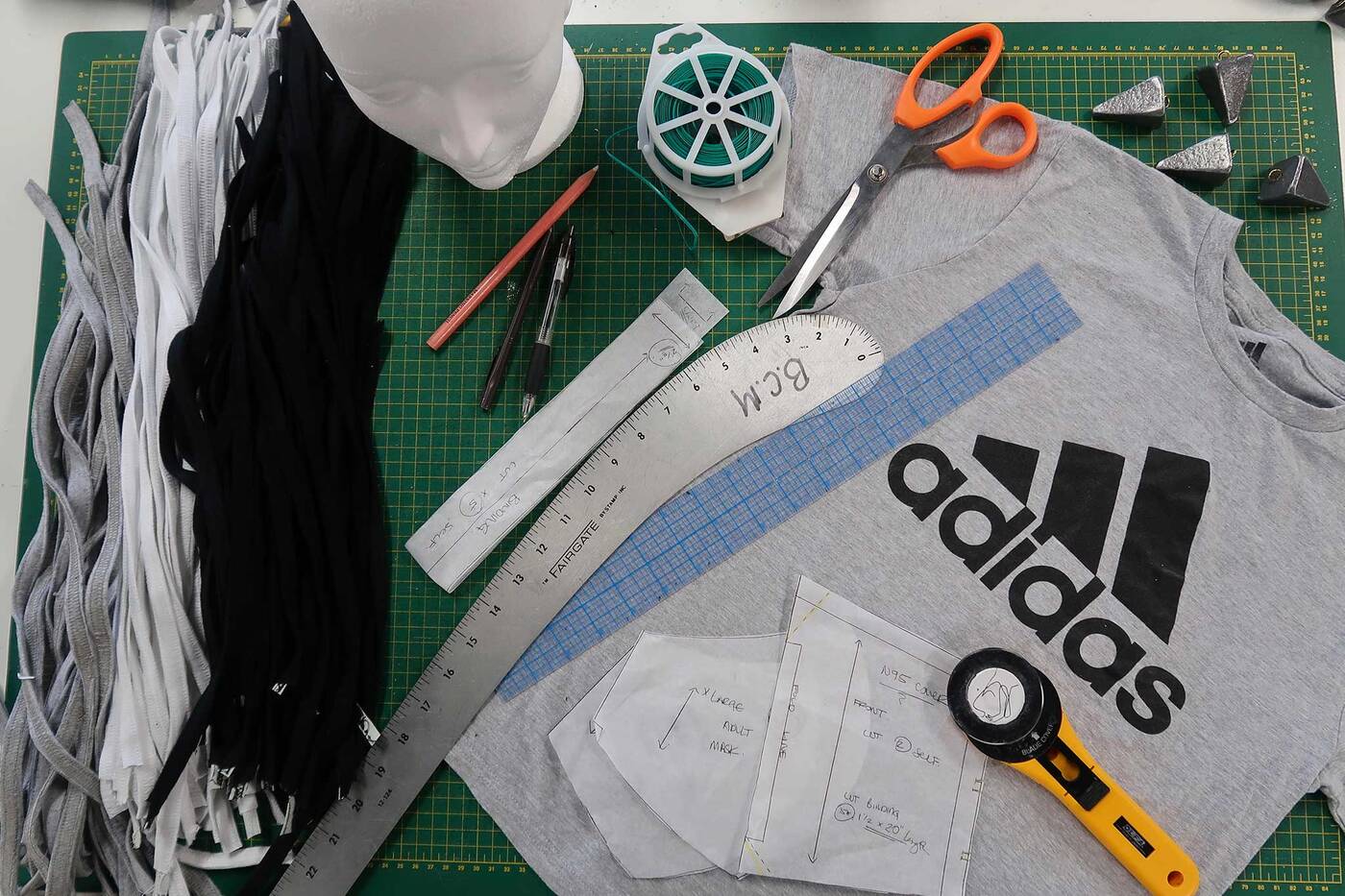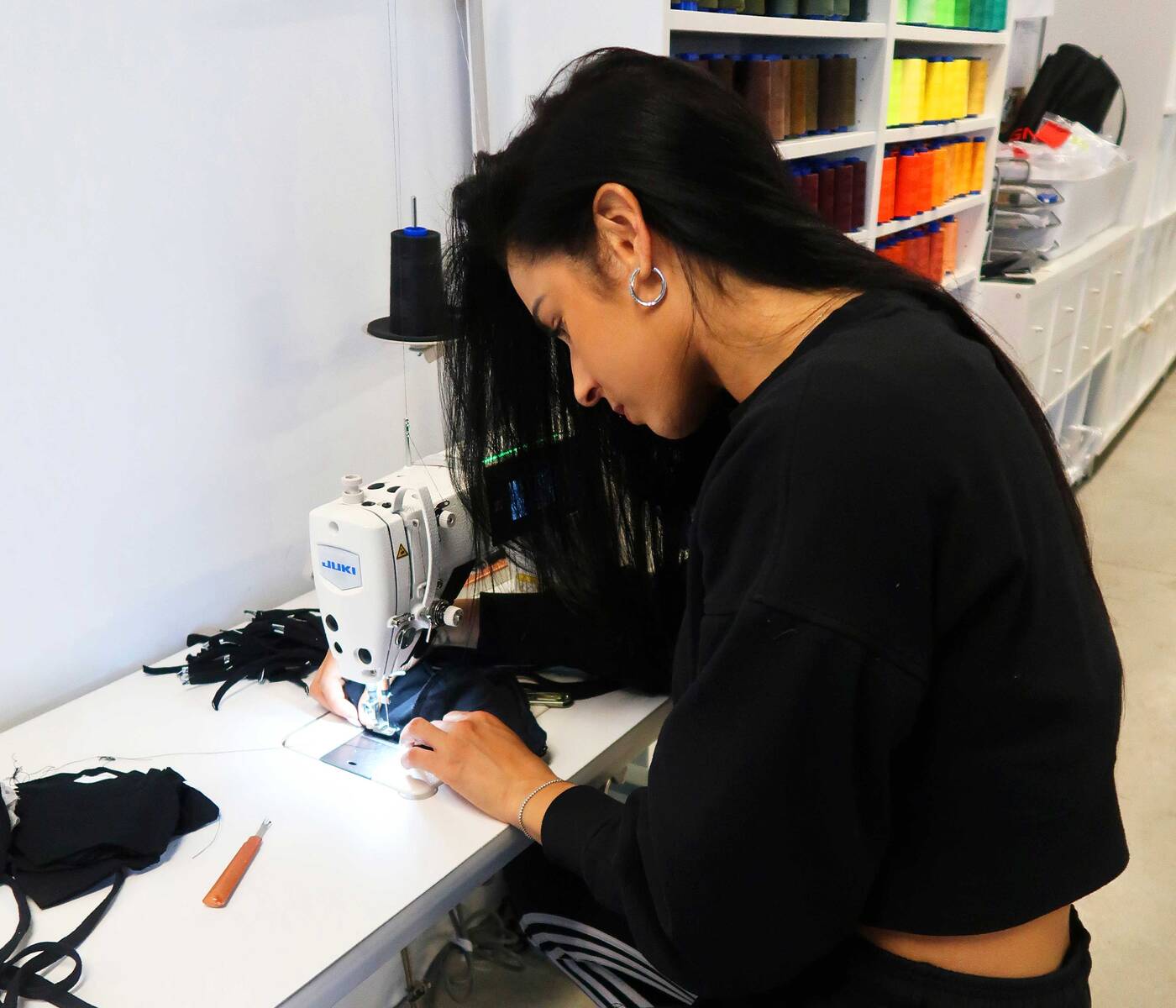
Sustainable and ethical Toronto-based swimwear company Ūnika Swim has been working with frontline healthcare workers to create face masks that speak to their specific needs, repurposing material provided by Adidas.
While the store’s Yorkville location has been temporarily shut down to comply with the governmental closure of nonessential businesses, Ūnika has still been very busy.
The brand was in a uniquely-qualified position to manufacture general face masks to donate to essential workers on duty during the pandemic because the company specializes in custom swimwear, meaning that it is able to manufacture all masks in house and on its own terms, and because of the initiative of its founder, Betsy Campos.
Campos says that when the outbreak began, she was approached by many who wondered whether she would manufacture masks through Ūnika.

Some of the tools of the trade to make the face masks.
“I didn't jump on it right away just because I knew that there would be some protocol as to what was efficient to wear or required to wear in a hospital,” Campos said. But she soon approached frontline healthcare workers to get their expert opinion and perspectives.
Campos asked healthcare workers what was bothering them about the masks they currently wore. One of the things she learned was that healthcare professionals receive one N95 mask per shift, she said.
She consequently decided to create a mask that workers could wear on top of their N95 masks to prolong their efficacy. Campos also took into consideration “the fact that the masks that they were wearing were hurting their ears and their head because there's so much elastic,” she said.
“I made my own pattern that ties, instead of the elastics behind the ears, just to ease the stress and tension off the ears,” Campos said.
With design in mind, Campos got in touch with Adidas for materials. This was done to carry on Ūnika’s mission of using sustainable and ethically-sourced materials, she says.
“I reached out to Adidas and asked if they would be willing to donate cotton t-shirts that they weren't able to sell, or maybe they had extra stock that they would be willing to donate to us,” she said.
Adidas ended up donating hundreds of brand-new, never-worn shirts.
Initially, uncertain of how much material she would receive from Adidas, Campos’s original goal was to produce 500 masks, she says. “Based off of [Adidas’] donations, we're definitely going to pass that. In a week we're getting around 300 to 350 [masks] done,” she said.
Campos is in her shop in Toronto sewing, while her team members are working remotely, with one producing masks in Nova Scotia, and one in Markham, Ontario.
Campos and her team are providing masks to hospitals across Canada, and also to institutions in New York, and Dallas, she says.
“We've had [donations made to] St. Joseph’s, St. Michael’s [hospitals], as well as midwife clinics, nursing homes, retirement homes,” Campos said.
“There's a lot of people that are needing masks, so we're looking to distribute not only [through] Toronto and Ontario, but also to other provinces that are in need and other clinics. There's no limitation on who we can donate to.”
The response from frontline workers to Campos and her team’s work in creating the masks has been positive because it speaks to workers’ pressing needs. This is due to the initiative Campos took in understanding what it felt like to wear an N95 mask.

Unika staff sewing the face masks.
“I put an N95 mask on and I could barely breathe,” Campos said. “For someone who's working a 72 hour shift in a hospital, you're wearing so many layers and the elastics in the masks are really digging into their skin,” she notes.
“The masks that we're creating are being tied around the back of the neck and the head, surgical style, rather than more elastic, as well as keeping all the coverage that they need, which is from ear to ear over the nose,” she said. Workers are also able to tuck masks under glasses if they need to.
Campos and her team have also put in an extra pocket in their masks to allow for an extra barrier to be added, she said. “So if they want to add an extra filter, they can totally do that because we have pockets in them,” she said.
The result of this work and conscientiousness on Campos and her team’s part has been gratitude, she said, but ultimately for her it’s not about receiving thanks so much as it is about giving thanks.
“It feels good to give back to those [who are currently on the front lines] while keeping our sustainability in mind and teaming up with larger platforms that are willing to assist right now,” Campos said.
by Alisha Mughal via blogTO

No comments:
Post a Comment